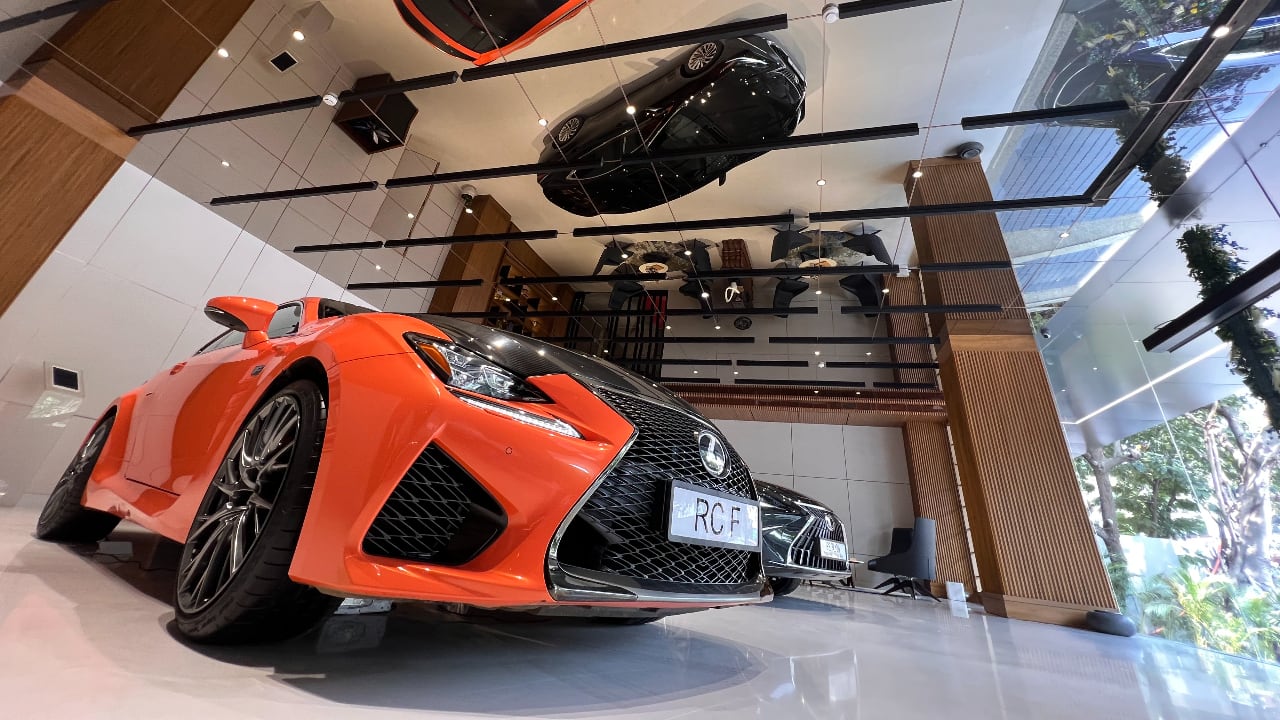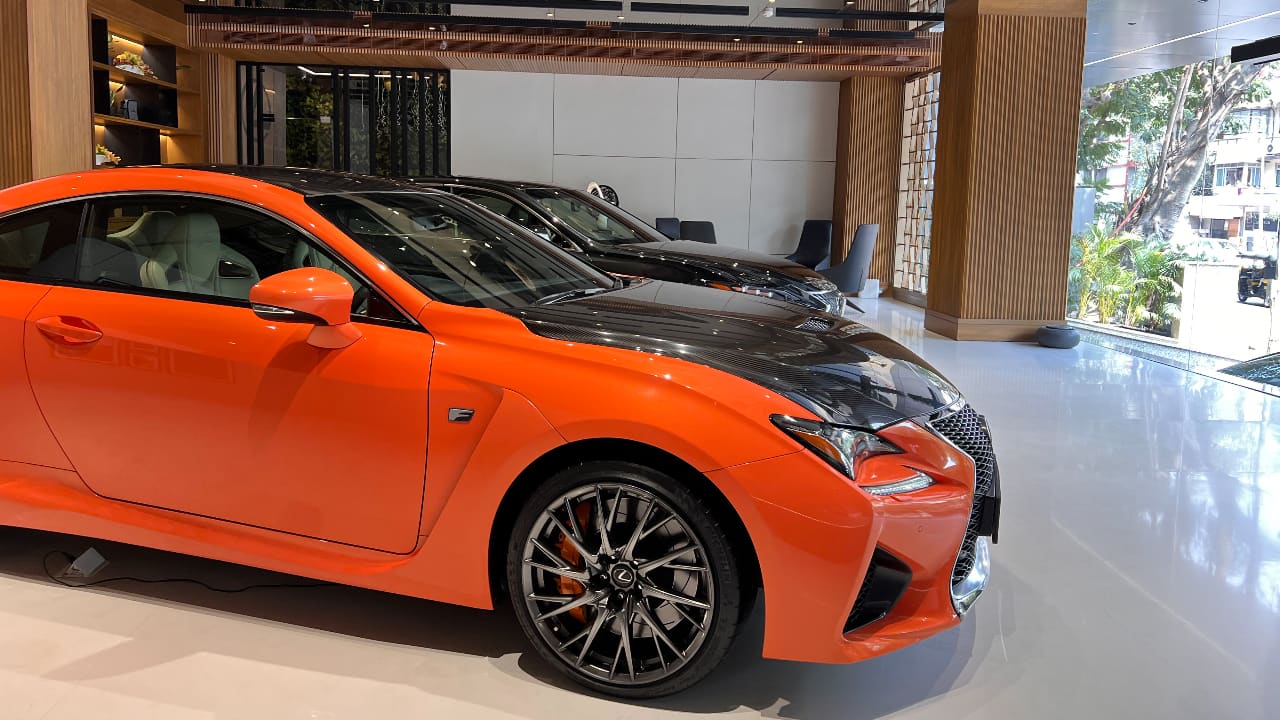



At the inauguration of its fourth Guest Experience Centre (GEC) in the country, everything appears to be quintessentially Lexus. Located at SV Road Mumbai, the new centre, is a sprawling oasis of calm, with design cues inspired from the brand’s own signature flourishes and Mumbai’s coastal connect. As a brand that locks horns with German luxury brands, Lexus India has had to distinguish itself in certain key ways. Their portfolio consists almost entirely of hybrids, which attract, in equal measure, the ecologically as well as the economically conscious. Being a Toyota-owned brand, Lexus cars are also considerably easier to maintain. But what the folks at Lexus India pride themselves over the most, is the brand’s fastidious attention to detail that takes a keen and discerning eye to appreciate. With the recent launch of the updated ES300h, and the impending arrival of the crossover NX, the question arises: are customers sitting up and taking notice of brand Lexus? Lexus India President PB Venugopal has the answers.
Edited excerpts from the interview:
Q: Has customer response become better, with the local assembly of the Lexus ES300h? Are people warming up to hybrids more than before?A: The response has been great. It’s much better than what we’d anticipated. Some of our Lexus “guests” who have been using the CBU model along with the locally assembled one find the suspension much better on the latter, along with the ride comfort. As for hybrids, before we launched in 2017, one of our hypotheses was that we should enter India, and we should do something to craft a better tomorrow. We should always do something that will contribute to a better environment. It was a conscious decision to come up with a complete range of self-charging hybrid vehicles. At that point of time, during our first year of evaluation we saw that 40 percent of our customers bought the car because it was a hybrid vehicle. Today if we go back to the same kind of evaluation, that percentage has increased to about 80% and this spike has occurred post the first lockdown. So when we dig deeper into this, we realise that Lexus customers are becoming very environmentally conscious. This gives us the confidence that we are heading in the right direction. When we demonstrate our self-charging hybrid tech, guests are very happy that it runs on 40 percent petrol and 60 percent electric (should the driving conditions prove ideal).
 Lexus ES300h EV.Q: Hybrids seem like the most sensible stop-gap measure on the path towards electrification, but do you think, with the recent slew of policies, there hasn’t been that much attention given to hybrids, or do you think we are gunning towards EVs even when the infrastructure doesn’t appear ready for it.
Lexus ES300h EV.Q: Hybrids seem like the most sensible stop-gap measure on the path towards electrification, but do you think, with the recent slew of policies, there hasn’t been that much attention given to hybrids, or do you think we are gunning towards EVs even when the infrastructure doesn’t appear ready for it.A: Before we come to electrified vehicles, we would like to compliment the government’s direction of “Atmanirbhar Bharat” which is moving towards self-reliance. This was one of the main reasons for us to get into local production. We were able to gain the confidence of our parent company in Japan to prove to them that we have very good, talented and skilful citizens who are able to deliver on Lexus quality. That’s one of the main reasons that India became the fourth country to produce Lexus cars locally. We are very much in line with the government’s direction of Make-in-India.
ALSO READ: Lexus unveils LF-Z EV Concept car; gives clues on future EV design
Lexus International has announced that it will move towards carbon neutrality by 2050 and so far, we’ve sold two million hybrid vehicles globally which has actually contributed to the saving of 19 million units Co2 emissions. As we know, across the globe, different nations are in different states of progression with regard to electrification. We came out with a portfolio of complete Lexus electrified vehicles which includes PHEVs, BEVs and self-charging hybrids, Our immediate focus in India will continue to be on self-charging hybrid electric vehicles. However, as part of our journey and part of our commitment to India, we are constantly evaluating whenever there’s an opportunity and the right time to launch a Lexus EV.
Q: What is the current strategic focus on? More locally assembled cars or expanding the portfolio?A: So from a product portfolio POV we have most of the product range from the Lexus vehicles which are available globally. Except for the LX, all our vehicles are self-charging hybrids. From a portfolio POV, we have no immediate plan of expansion. The focus will be on self-charging hybrid electric vehicles. Our focus is providing a guest experience, not only from a selling POV but also from an ownership POV, so this helped us launch the Lexus ownership portfolio. So this actually helped us launch the Lexus Ownership Portfolio, under the umbrella of Lexus Life, where we have extended warranty, Lexus Financial Services, Lexus Protect Insurance portfolio, and roadside assistance. The recent development is that we also came up with an 8-year hybrid battery warranty, which again reinforces the confidence of our guests.
 Lexus ES300h EV in a showroom in India.Q: There’s also been a production linked incentive by the government, which seems to be geared towards encouraging large, international brands to manufacture locally. Has that encouraged the brand to consider enhancing its localisation efforts?
Lexus ES300h EV in a showroom in India.Q: There’s also been a production linked incentive by the government, which seems to be geared towards encouraging large, international brands to manufacture locally. Has that encouraged the brand to consider enhancing its localisation efforts?A: I think the PLI scheme opens the doors to many global players. This will have a positive contribution to the overall ecosystem. It will actually benefit the country and we can actually become a hub for localised parts supply. From our organisational point of view, we always welcome this move and we’re constantly evaluating how we can focus on localisation of the electrified system.
A: Before we launched in 2017, our research showed that high net worth individuals always looked for personalised services. So we came up with the idea of a simple point of contact. So each customer has a single point of contact for all their needs. This has gone very well with our guests. We also imbibe the Japanese spirit of Omotenashi, which is all about anticipating the needs of the customers.
Q: Is there a plan to locally assemble your next offering - the NX450h?A: So the ES300h, has been well-received. The NX is also a very important model since the SUV segment is also growing. NX300 is something which we’re evaluating. But we have no immediate plans for local production.
Q: Are all products being evaluated for local assembly? Is that the ultimate goal?A: Our commitment to India is from mid-to-long-term. We are committed to the 'Make-In-India' initiative. So from that point-of-view, we keep evaluating, not only from a local production of vehicles, but also in terms of electrified parts.
Discover the latest Business News, Sensex, and Nifty updates. Obtain Personal Finance insights, tax queries, and expert opinions on Moneycontrol or download the Moneycontrol App to stay updated!
Find the best of Al News in one place, specially curated for you every weekend.
Stay on top of the latest tech trends and biggest startup news.